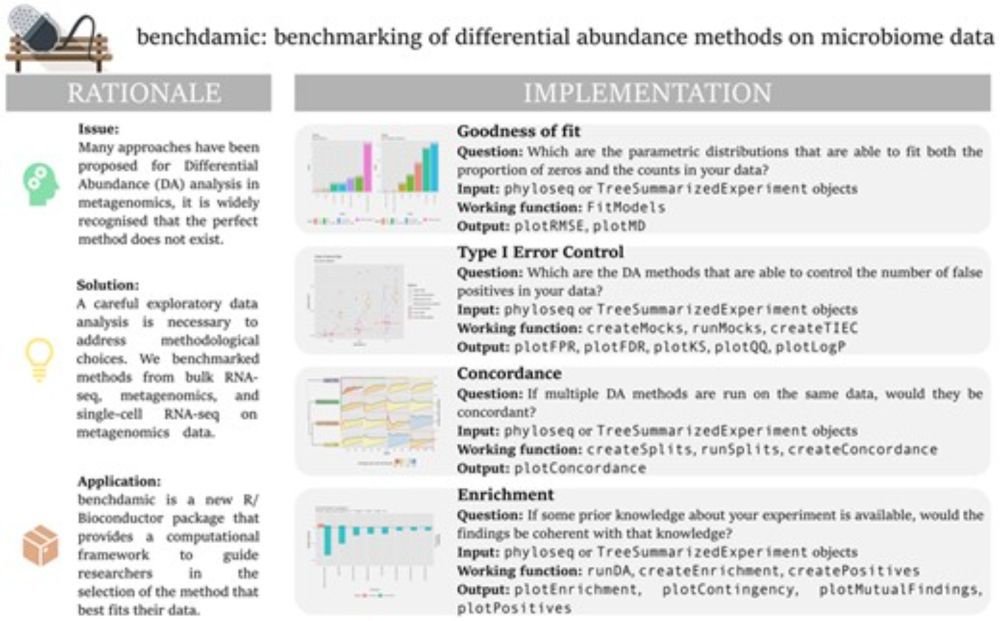




We know, we have better methods that have been validated against datasets with ground truth.
www.biorxiv.org/content/10.1...
(thread)


1) Oral microbiomes (supragingival vs. subgingival plaques)
2) Vaginal microbiomes (healthy vs. bacterial vaginosis)
3) Spike-in dataset with known absolute abundances
These datasets cover diverse complexities.
1) Oral microbiomes (supragingival vs. subgingival plaques)
2) Vaginal microbiomes (healthy vs. bacterial vaginosis)
3) Spike-in dataset with known absolute abundances
These datasets cover diverse complexities.


